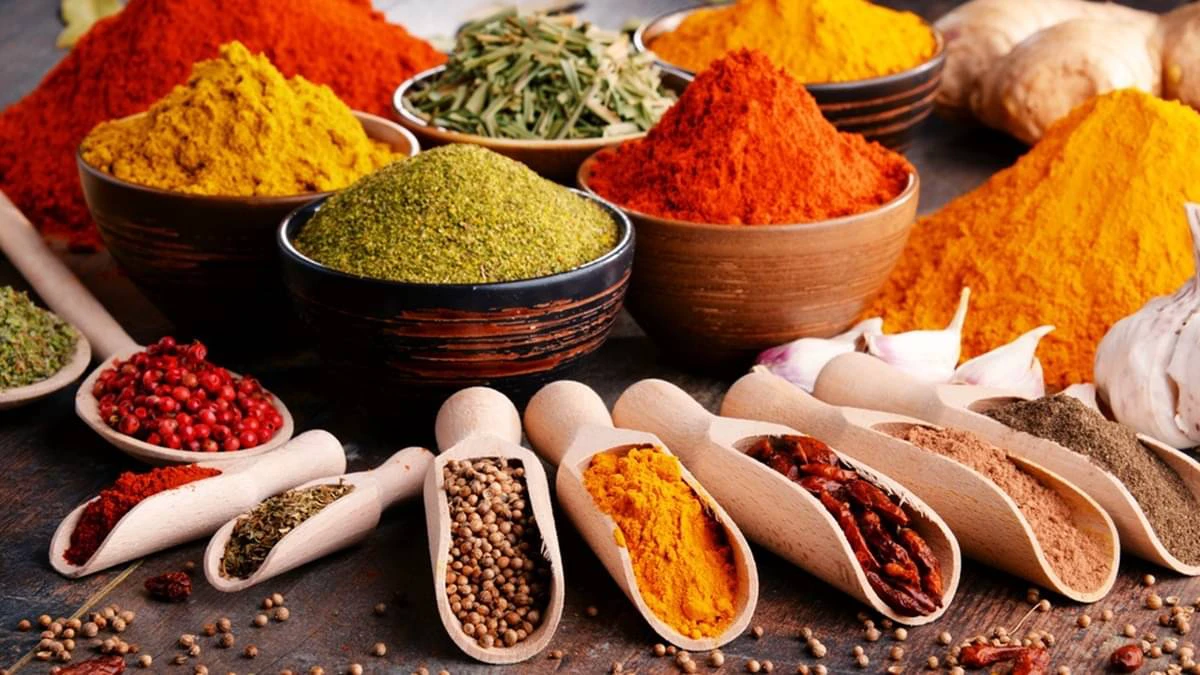New Delhi: Amidst a brewing trade tension between India and the United States attributed to Donald Trump’s tariffs, the Narendra Modi government is doubling down on its efforts to safeguard the country’s agricultural sector.
The central government’s efforts have been nourishing the agricultural sector, strengthening the farmers and supporting the agricultural industries, particularly the spice industry. As the world’s largest producer, consumer, and exporter of spices, India is well-positioned to capitalise on the growing global demand for its aromatic products.
The Narendra Modi government has been actively working to strengthen India’s agricultural exports, benefiting farmers and enhancing the country’s global presence. With exports of spices reaching around 200 countries, the government’s initiatives have played a crucial role in boosting farmers’ income and ensuring their benefits.
The Agriculture Export Policy, launched in 2019, was crafted to double farm exports by diversifying the export basket and destinations, focusing on high-value and value-added agricultural products. Additionally, the government has implemented initiatives like the Agriculture Infrastructure Fund, providing Rs 1 lakh crore in financial assistance to agri-entrepreneurs, startups, and farmer groups for post-harvest management and farm asset development.
The recent 19th edition of FI India and the 7th edition of Propack India Expo, held at the India Expo Mart in Greater Noida, showcased the country’s rich culinary heritage and the government’s commitment to promoting the spice industry. With over 340 exhibitors and strong international participation, the event attracted more than 15,000 professionals from the food ingredients, processing, packaging, and supply chain ecosystem.
Safeguarding Farmers’ Interests
Prime Minister Narendra Modi’s government has been vocal about protecting the interests of Indian farmers, particularly in the face of the Trump administration’s tariffs. The government’s stance is clear that India’s agricultural sector will not be compromised in any trade negotiations. The government’s resolve to safeguard farmers’ interests has been lauded by Yogesh Mudras, Managing Director of Informa Markets in India, who noted that India’s spice industry has flourished under the current government’s leadership, with exports reaching $4.45 billion.
“The Indian food processing sector is undergoing a transformative phase, driven by rising health consciousness, growing preference for organic and plant-based foods, and a notable shift in dietary patterns. With the organic food market projected to touch Rs 75,000 crore by 2025,” Mudras added.
The government’s efforts to promote the spice industry are part of a broader strategy to boost India’s exports and reduce its dependence on foreign markets. By stressing the importance of ‘Swadeshi’ or indigenous products, the government is encouraging businesses to focus on domestic manufacturing and export-oriented industries. The approach is expected to not only increase India’s exports but also create new opportunities for farmers and small businesses.
India’s Spice Industry And Organic Food Market On The Rise
The organic food market in India is expected to reach Rs 75,000 crore by 2025, with most consumers willing to pay a premium for healthier options. The trend is driving rapid expansion in fruits, vegetables, and plant-based offerings, benefiting farmers and small businesses alike. Dr Meenakshi Singh, Chief Scientist at the Council of Scientific and Industrial Research (CSIR), outlined the importance of innovation in the food industry, citing CSIR’s 37 research and development laboratories that promote innovation and safety testing.
India’s spice industry has a huge presence in the global market, with over 60 varieties of spices exported to more than 200 countries. The industry’s growth is driven by the country’s strong leadership and visionary plans, as noted by Yogesh Mudras. Dr Prabodh Halde, Chairman of the Chamber for Advancement of Small and Medium Businesses, also explained the importance of India’s food processing and ingredients industry in the global geopolitical scenario, citing its immense growth possibilities.
Government’s Efforts Play Crucial Role To Mitigate Trump’s Tariffs
Meanwhile, the government, to mitigate the impact of Trump’s tariffs, is exploring ways to enhance competitiveness and boost exports. The efforts included increasing investment in agricultural research and development (R&D) to enhance yields and competitiveness, as well as strengthening agricultural value chains to boost exports. The government is also discussing tariffs with the Trump administration on various sectors, including electronics, medical equipment, and chemicals, to facilitate increased US exports and avert a trade conflict.
PM Modi has also emphasised the importance of safeguarding farmers’ interests, stating, “For us, the interest of our farmers is our top priority.” India’s agricultural exports to the US, including frozen shrimp and prawns, basmati rice, and natural honey, have been impacted by Trump’s tariffs. However, the government’s efforts to promote exports and support farmers are expected to help mitigate these challenges.
